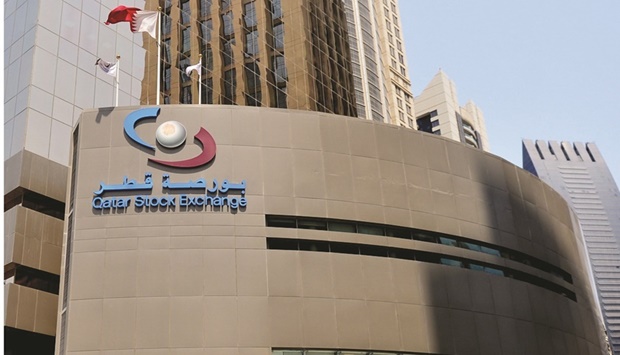Environment, social, and governance (ESG) has emerged in recent years as one most important topics on the Qatari business agenda, according to a new report.
The report titled ‘Qatar’s Sustainable Economic Transition’, produced by Oxford Business Group (OBG), in partnership with LuLu Group International discusses how ESG policies are being embedded into the Qatari business environment and capital markets.
“Key business stakeholders, such as investors, financiers, regulators, and customers are now expecting that ESG policy adoption and reporting will be part of a company’s long-term strategy for sustainable value creation, and will be an increasingly important component of its relationship with the financial markets,” the report stated.
According to the report, Qatar’s National Vision 2030 emphasises that economic and societal development needs to be accomplished through responsible policies that demonstrate respect for communities and the environment.
It stated that the Qatar Stock Exchange (QSE) has committed to promoting sustainable practices in the markets in the belief that corporations will only be successful in the long term if their models respect the triple bottom line of “profit, planet, and people.”
Although the QSE encourages companies to consider international reporting standards, it has also developed a set of 34 key performance indicators (KPIs) that local companies can follow as they progress on their ESG journey, the report noted.
The report said in 2016, the QSE joined the Sustainable Stock Exchanges (SSE) initiative of the UN, which is a platform to explore how stock exchanges can enhance ESG performance and encourage sustainable investment.
The following year, the QSE introduced ESG Guidance featuring 34 KPIs to assist all listed companies that wish to incorporate ESG into their reporting processes. The QSE launched the ‘Sustainability & ESG Dashboard’ in 2018 – the first such platform in the GCC region to encourage listed companies to publicly disclose reliable information on their ESG performance.
In 2021, the QSE launched its first ESG-Tradable Index and announced plans to mandate ESG disclosures for publicly listed firms, reflecting a broader global shift towards long-term value creation among corporates.
This year, the Qatar Financial Centre (QFC) developed a Sustainable Sukuk and Bonds Framework, based on the latest International Capital Markets Association, Green Bond Principles, Social Bond Principles, and Sustainable Bond Guidelines.
“In an uncertain global environment, investors value transparency about the ESG initiatives companies are implementing, the risks they are mitigating and the likely returns such policies could generate.
“One of the key findings of PWC’s 2021 global investor survey of 325 investment professionals across 43 territories is that they are increasingly paying attention to the ESG risks and opportunities facing the companies in which they invest, and are poised to take action accordingly,” the report stated.
On attitudes toward ESG risks and opportunities, 79% of respondents said ESG risks are an important factor in investment decision-making, while 75% stated that companies should address ESG issues, even if doing so reduces short-term profitability.
Also, 68% agree that ESG performance and targets should be factored into executive pay and 50% of the respondents stated that they are willing to divest from companies that are not taking sufficient action on ESG issues.
“Key business stakeholders, such as investors, financiers, regulators, and customers are now expecting that ESG policy adoption and reporting will be part of a company’s long-term strategy for sustainable value creation, and will be an increasingly important component of its relationship with the financial markets,” the report stated.
According to the report, Qatar’s National Vision 2030 emphasises that economic and societal development needs to be accomplished through responsible policies that demonstrate respect for communities and the environment.
It stated that the Qatar Stock Exchange (QSE) has committed to promoting sustainable practices in the markets in the belief that corporations will only be successful in the long term if their models respect the triple bottom line of “profit, planet, and people.”
Although the QSE encourages companies to consider international reporting standards, it has also developed a set of 34 key performance indicators (KPIs) that local companies can follow as they progress on their ESG journey, the report noted.
The report said in 2016, the QSE joined the Sustainable Stock Exchanges (SSE) initiative of the UN, which is a platform to explore how stock exchanges can enhance ESG performance and encourage sustainable investment.
The following year, the QSE introduced ESG Guidance featuring 34 KPIs to assist all listed companies that wish to incorporate ESG into their reporting processes. The QSE launched the ‘Sustainability & ESG Dashboard’ in 2018 – the first such platform in the GCC region to encourage listed companies to publicly disclose reliable information on their ESG performance.
In 2021, the QSE launched its first ESG-Tradable Index and announced plans to mandate ESG disclosures for publicly listed firms, reflecting a broader global shift towards long-term value creation among corporates.
This year, the Qatar Financial Centre (QFC) developed a Sustainable Sukuk and Bonds Framework, based on the latest International Capital Markets Association, Green Bond Principles, Social Bond Principles, and Sustainable Bond Guidelines.
“In an uncertain global environment, investors value transparency about the ESG initiatives companies are implementing, the risks they are mitigating and the likely returns such policies could generate.
“One of the key findings of PWC’s 2021 global investor survey of 325 investment professionals across 43 territories is that they are increasingly paying attention to the ESG risks and opportunities facing the companies in which they invest, and are poised to take action accordingly,” the report stated.
On attitudes toward ESG risks and opportunities, 79% of respondents said ESG risks are an important factor in investment decision-making, while 75% stated that companies should address ESG issues, even if doing so reduces short-term profitability.
Also, 68% agree that ESG performance and targets should be factored into executive pay and 50% of the respondents stated that they are willing to divest from companies that are not taking sufficient action on ESG issues.

